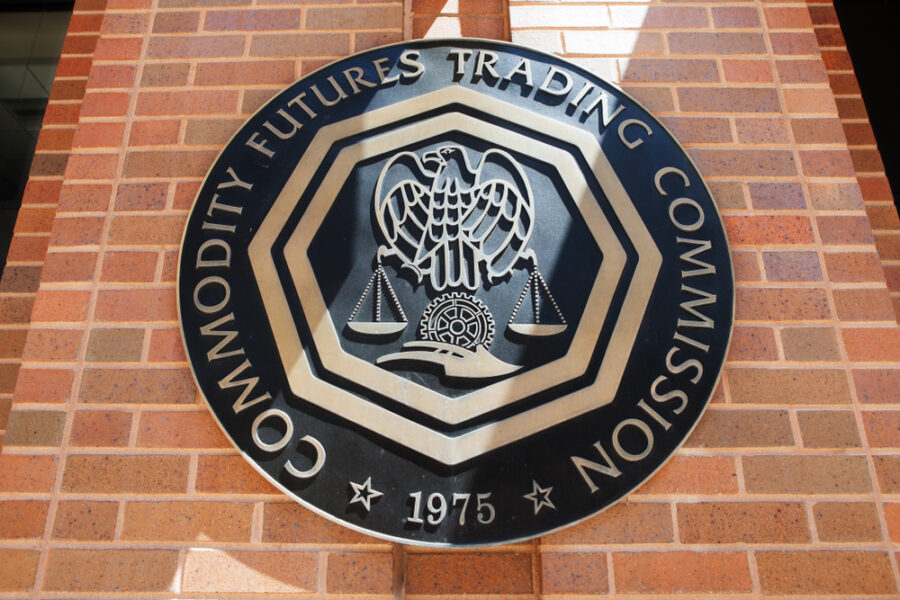Sleeper Markets sues Commodity Futures Trading Commission over alleged license interference

Fantasy sports operator Sleeper Markets has filed a civil lawsuit against the Commodity Futures Trading Commission and its Acting Chair, Caroline Pham, accusing the agency of blocking its application for a futures commission merchant license.
The complaint was filed in the US District Court for the District of Columbia yesterday (September 29).
The company submitted its application in May 2025 and claims to have met all regulatory deadlines. By August, the National Futures Association had reportedly deemed the application complete and ready for approval.
According to Sleeper, the Commodity Futures Trading Commission instructed the National Futures Association not to approve the application, leaving it unresolved for more than a month without explanation or a formal hearing.
The company claims this gives competitors an unfair advantage and causes immediate harm to its business, as the National Futures Association approved a similar application from a competing daily fantasy sports operator, PrizePicks, during that time.
Sleeper Markets argues that the agency’s actions undermine transparency and fairness in the growing US sports markets sector.
The company is seeking a court order to prevent further interference and to declare its application eligible under the Commodity Exchange Act.
No timescale has been given for the lawsuit to be heard.
Abi Bray brings strong researching skills to the forefront of all of her writing, whether it’s the newest slots, industry trends or the ever changing legislation across the U.S, Asia and Australia, she maintains a keen eye for detail and a passion for reporting.
Verticals:
Sectors:
Topics:
Dig Deeper
The Backstory
Momentum builds around event markets
The modern prediction-market story turned in early September, when the Commodity Futures Trading Commission gave Polymarket a path to relaunch in the United States through a no-action letter tied to its $112 million purchase of a licensed derivatives exchange and clearing house. The move followed a year in which prediction venues pressed for clarity and infrastructure, and it signaled the agency’s willingness to test new guardrails after years of cautious posture. Advocates cast prediction markets as tools for price discovery and public forecasting. Skeptics call them digital casinos. The CFTC’s green light put that debate into the mainstream of financial policy.
Polymarket’s return came with immediate questions. The decision arrived as market structure and jurisdiction issues remained unsettled, including the boundaries between listed event contracts, retail access and conflicts with state gambling law. It also intersected with a burst of competitive positioning among sports and fantasy operators seeking licenses, partners and institutional plumbing to route orders to federally regulated venues. The result: a fast-moving scramble to define what counts as a permissible event contract and who gets to intermediate it.
That scramble frames the stakes for companies jockeying to be first movers, for state regulators wary of workarounds and for federal agencies balancing innovation with consumer protection. It also explains why seemingly technical steps — a no-action letter here, an intermediary registration there — are now catalysts for lawsuits, state cease-and-desists and dueling policy speeches.
Flashpoint over who gets approved first
The fault lines sharpened when Sleeper Markets sued the CFTC and Acting Chair Caroline Pham, alleging unlawful interference with its application to become a futures commission merchant. In a complaint filed Sept. 29 in Washington, the company said its May application advanced on schedule and was deemed complete by August, but the National Futures Association held approval after CFTC direction, leaving Sleeper in limbo while a competitor cleared the final hurdle. Sleeper argues the delay created an uneven playing field and seeks a court order to stop further interference and validate its eligibility under the Commodity Exchange Act. The filing details are in Sleeper’s lawsuit against the CFTC.
The rival in question, PrizePicks, won NFA approval for an FCM registration through subsidiary Performance Prediction II, letting it handle customer orders for event contracts on designated contract markets. The approval arrived as parent Allwyn agreed to buy a 62.3% stake in PrizePicks for $1.6 billion, underscoring how capital and compliance strategy are moving in lockstep. PrizePicks signaled it may partner with market operators like Robinhood or Kalshi as it builds out prediction-market rails and emphasized alignment with CFTC standards.
The contrast between one firm advancing and another suing over delays spotlights a key leverage point in market formation. Intermediary approvals decide who can touch retail flow and at what speed. In a nascent sector where first access to liquidity can cement network effects, the timing of a stamp from federal gatekeepers can tilt commercial trajectories.
States push back on “sports contracts”
Federal action is colliding with state-level enforcement. In Arizona, gaming chief Jackie Johnson warned that buying binary outcomes on sporting events looks like betting under state law and wrote CFTC leadership to say the practice violates Arizona’s statutes. Johnson’s letter to Acting Chair Pham argued the CFTC is not policing its own rule that bars contracts infringing state law. Arizona recently issued cease-and-desist notices to Kalshi, Crypto.com and Robinhood; other states have taken parallel steps, with some cases now in court.
This state-federal friction was foreshadowed when sports leagues and casino stakeholders opposed exchange-traded NFL futures in 2020. That earlier bid, tied to Eris Exchange and an Ifrah-led effort, was withdrawn after pushback from the NFL and the American Gaming Association. The history is recapped in coverage of RSBIX’s latest application. The public record reflects how sensitive sports-related contracts are to claims of integrity risk and jurisdictional overlap with legalized sports betting.
The legal questions now stretch beyond sports. The Securities and Exchange Commission and CFTC issued a joint statement this month to coordinate on spot crypto issues, but that note left core event-contract questions open, including the contours of retail protections and product oversight. The statement is posted by the SEC at sec.gov. Without bright lines, companies are testing pathways — by partnering with licensed venues, by seeking FCM status or by routing around states that threaten enforcement.
New bids to list event contracts
Even as approvals and lawsuits play out, new exchanges are seeking to list event markets directly. RSBIX, aligned with U.K.-licensed betting exchange Matchbook, filed Sept. 16 for designation as a contract market focused on sports. The bid is on file at the CFTC and marked “pending” on the agency’s industry dashboard. Initial reporting by VegasSlotsOnline highlighted founder Jeff Ifrah’s ties to major sportsbooks and prior efforts to bring NFL contracts to market.
Polymarket, meanwhile, leaned on acquisition to stitch together the licenses it needed, drawing regulatory scrutiny for what some describe as a “rent or buy” strategy. The CFTC’s public communications show the agency formalized conditions around the venue’s operations. Its announcement of related designations and transfers appears in a Sept. 17 press release. The arc from a 2020 crackdown on retail binary options to limited no-action relief today reflects an evolving calculus: allow narrow, supervised experiments while preserving enforcement tools if consumer harms emerge.
The path to permanence remains uncertain. The CFTC has blocked or discouraged event contracts before — notably when an exchange pulled an NFL futures plan in 2021 as the agency prepared to reject it, according to the Wall Street Journal’s contemporaneous account. That episode still colors expectations on how far sports-linked listings can go without new rulemaking.
Consumer risks and regulatory turf
The shift toward broader retail access has revived concerns inside the CFTC. Commissioner Kristin Johnson, in a farewell speech warning about prediction markets the same day Polymarket won relief, said retail money is flowing into products without consistent protections. She urged tighter controls on leverage, custody and incentives, citing prior crypto failures as cautionary tales. Johnson also criticized license “rent or buy” tactics that let approvals migrate to firms that did not undergo original scrutiny.
The debate is not just about consumer safeguards. It is also about which regulator — state gaming commissions, the CFTC, or even the SEC if products morph into securities — will anchor the framework. Without clear jurisdictional lines, firms face a patchwork of permissions and prohibitions, which encourages forum shopping and litigation. The CFTC and SEC’s coordination on crypto underscores the need for a cohesive approach; event markets may be the next test case.
For now, companies are pursuing parallel strategies. Some, like PrizePicks, are integrating into the futures ecosystem as intermediaries. Others, like RSBIX, seek to be listing venues. And platforms such as Polymarket are acquiring their way into compliance while courting prominent backers — a strategy that has drawn political scrutiny alongside investment headlines. Polymarket’s recent advisory additions and capital raise were detailed in its own releases and industry coverage, amplifying the sector’s profile as mainstream brokers and fintechs explore distribution partnerships.
The upshot: the ground rules for prediction markets are being made in real time, deal by deal and docket by docket. Each approval, lawsuit and state action will set precedent. The winners will be those that can navigate both layers of regulation and demonstrate that event contracts can serve price discovery without blurring into gambling where states have the final say.








